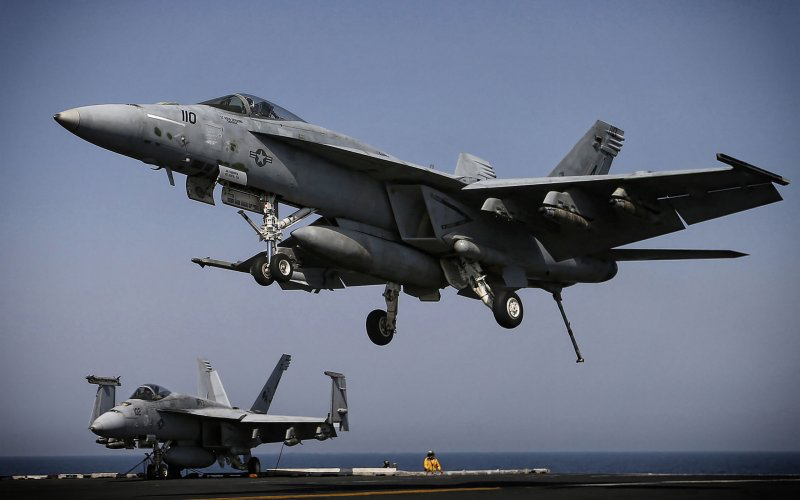
Is ISIS Good for U.S. Strategy?
Let me start by saying that ISIS is comprised of a truly horrible group of people. Their reign of terror in Syria and Iraq has featured executions, beheadings, attempted genocide and reportedly large scale sexual violence. This sort of behavior is morally reprehensible and cannot be tolerated by anyone who shares humanist values. Western states and the United States government are absolutely correct in vigorously condemning these outrages and crimes against humanity. However, as terrible as this might sound, ISIS actually serves American strategic and national interests.
The discussion on ISIS in American policy circles and the media has focused on the tactical threats presented by the emerging caliphate in Syria and Iraq. The discussion has included the threat ISIS presents to American allies, such as the Kurdistan Regional Government and Jordan. It has also focused on the threat of possible ISIS terrorism against the United States directly, as well as its role in radicalizing European and American Muslims.
What the conversation has lacked is a wider view of the interests of the United States in the Middle East. Since the end of the Cold War, the US has pursued a vigorous internationalist policy in the region which has involved heavy support for American allies, the active promotion of democracy and generous doses of direct military interventions. Yet the conventional wisdom has indicated, quite correctly, that the American public no longer has the stomach for costly commitments and entanglements abroad.
The Obama administration has also evinced a hesitation to get involved in foreign adventures, particularly in the Middle East.
President Obama has famously said “It is time we take some of the money that we spent on wars, use half of it to pay down our debt and then use the rest of it to do some nation-building right here at home.”
Strategically speaking, the administration has made it clear that its priorities lay elsewhere. The much discussed, though little executed, “pivot to Asia” was one of the more compelling elements in recent American foreign policy. The pivot idea is based on the insight that East Asia is emerging as the demographic and economic center of the world and therefore should be the focal point of a more limited American foreign policy.
If so, an aggressive internationalist policy in the Middle East is out of step with the desires of both public opinion and the administration. However, the United States has too many interests in the Middle East to embrace a course of full isolationism. It has a vested concern in the price of oil, the security of its allies, the spread of weapons of mass destruction, and requires intelligence assets to keep track of terrorist organizations. Therefore it must maintain a certain level of involvement in Middle Eastern affairs.
The United States finds itself in a similar situation to that of England in the 18th and 19th Century. The English were unable to control the continent of Europe but could not ignore developments in an area of immediate strategic importance. Therefore, they pursued a devious policy of “offshore balancing.” The goal was the prevention of any single power from dominating Europe, for if that were to occur, British commerce would be greatly curtailed, the British Isles could be blockaded and ultimately the homeland itself could be invaded. Therefore, the English monitored the balance of power and instinctively supported the weaker side.
This brings us back to ISIS and the modern Middle East. In 2003, the United States upset the balance of power in the Middle East by removing Saddam Hussein, a staunch rival of Iran, from power. Since then Tehran has threatened to become the dominant power in the Levant. The Shiite dominated government in Baghdad has gradually become an Iranian proxy state. The Syrian regime in Damascus, strongly allied with Iran, has managed to cling to power against all odds. The Iranian sponsored terrorist groups, Hezbollah and Hamas, have become dominant in Lebanon and Gaza respectively. If so, a danger has emerged of an Iranian sphere of influence stretching from Western Afghanistan to the Mediterranean. This presents a major challenge to the security of American allies, US influence on the price of oil and to its ability to counter Iranian sponsored terrorist groups. It also would seem to represent a death knell to any hope of the spread of democracy in the region.
ISIS presents the most powerful and authentic Sunni antidote to the spread of Iranian influence in the Middle East. It has carved out a large section of Syria from Assad, where pro-Western rebels and Al Qaeda affiliated forces have failed, while splitting the Iranian sphere into two. ISIS has even proven useful in containing Al Qaeda influence in Syria, as its rise has seen the near demise of the Al Nusra front, affiliated with America’s sworn enemy. ISIS is performing services for American interests which none of its vaunted state allies, such as Israel or Jordan, are capable of.
None of this means that the United States should support ISIS physically, morally or spiritually. To do so would threaten Jordan and the Kurds as well as prove to be a major setback for American moral authority. However, bombing ISIS is counterproductive on two levels. First it does Iran’s dirty work at American expense. The US is essentially utilizing its air-force in order to help crush Sunni opposition and help Iran re-establish its “Shiite crescent.” If ISIS collapses, future historians will wonder why the United States handed the Levant to Iran on a silver platter.
If ISIS does not collapse, the US will have created a major enemy where one need not have existed. The Islamic State organization has proven to be very regionally focused and has not been particularly interested in the United States until recently. Therefore their rise at the expense of US obsessed Al Qaeda should be seen as a positive development for the American national interest. However, since the commencement of the campaign, ISIS have released anti-American diatribes and executed American journalist James Foley. On August 22, the Department of Homeland Security issued a warning that ISIS may launch retaliatory strikes against the United States. Thus, instead of countering an anti-American terrorist threat, the bombing is creating one.
The Obama administration is working against its national interest by interfering in an internal Middle Eastern conflict, particularly since it is taking the side of the stronger side against the weaker one. The US should continue to defend the Kurds and Jordan by providing them with the weaponry and training they need to withstand ISIS attacks.
However, it need not defend the Baghdad government which serves Tehran and not Washington. Iran has a vested interest in countering the rise of ISIS and will do so. The Shiite majority in most of Iraq, long with Iranian support, mean that there is little chance of all of Iraq falling to ISIS. The United States should take a page out of the British book and intervene only in order to balance when one of the sides is outmatched. Until then, they should leave ISIS to their caliphate.

